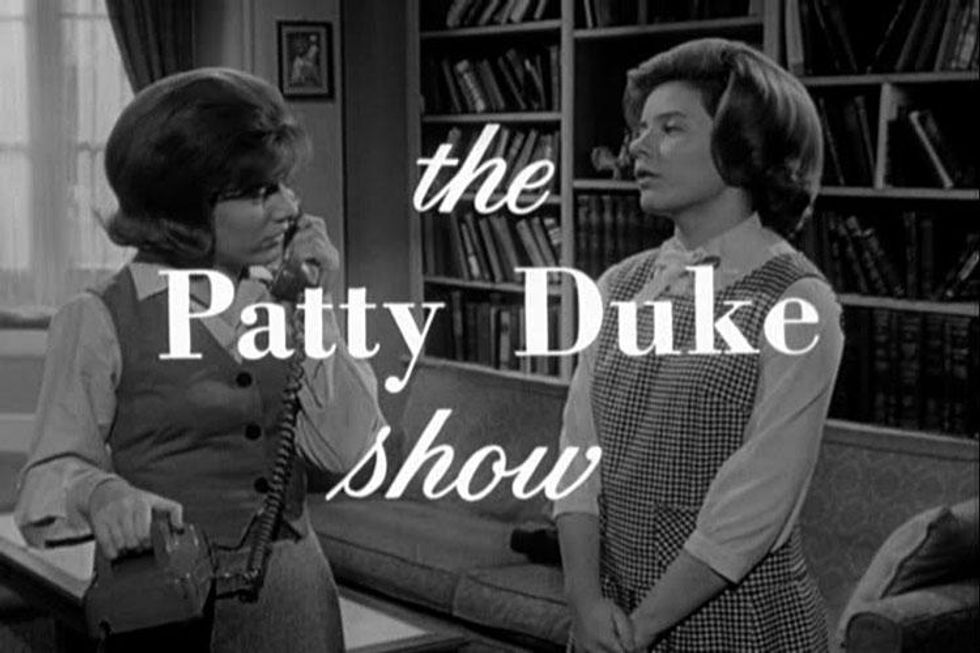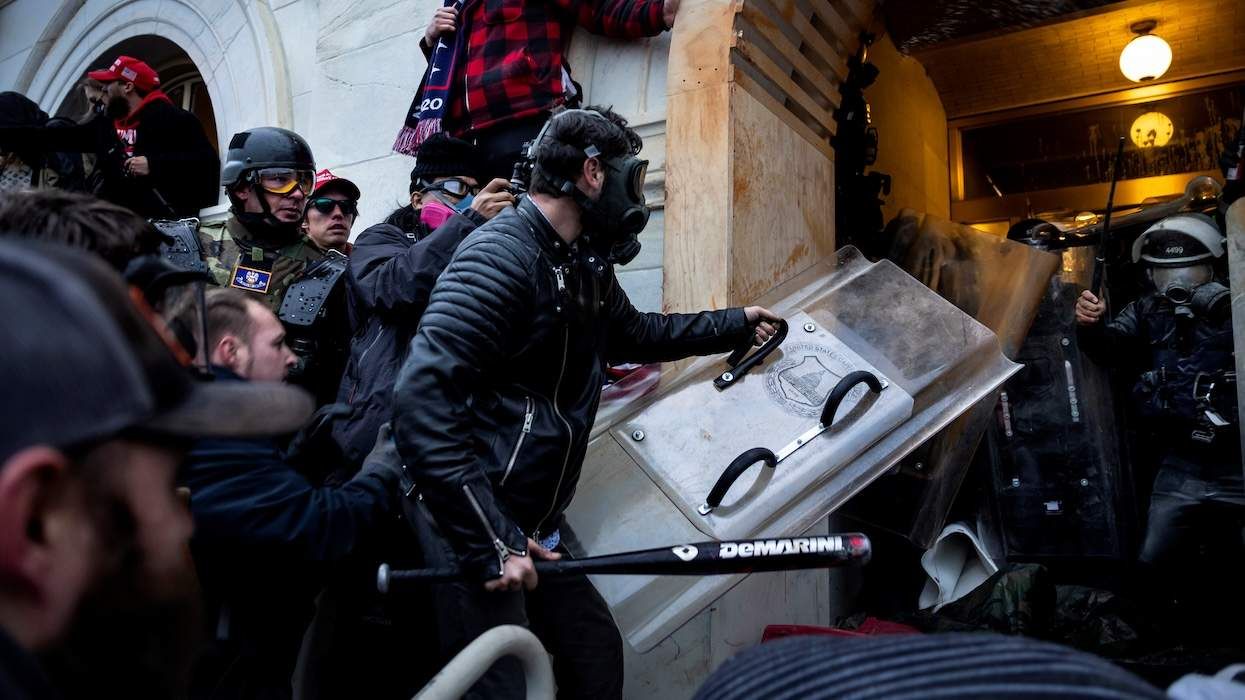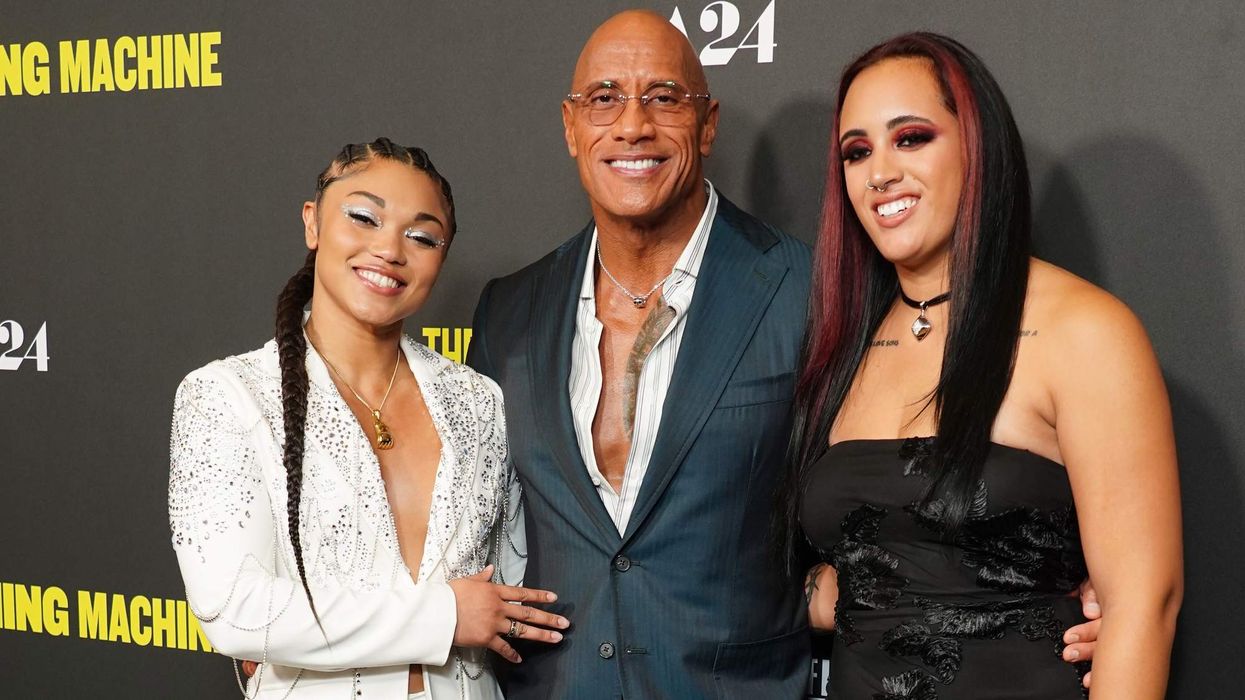It seems that the celebrity death rate has started climbing of late. But really, it's just that the famous people and pop idols of my generation are starting their natural return to the cosmic unknown. So they loom larger in my consciousness and the loss of them feels more profound.
My generation is the first television generation. We were the first kids who stayed home sick from school and watched soaps with mom, watched Captain Kangaroo in the morning before catching the bus, and then caught frisky game shows and heartwarming sitcoms with the family at night.
Like me, you may have had an odd identification with Cathy and Patty, the identical cousins on The Patty Duke Show. One was a wild and all-American teenager, the other was prim and used words too big for the other kids. Cathy, the British cousin, stood out for her rare manners and delicate tastes. She was different. On the other hand a hot dog made Patty lose control -- so yeah, that was me too.
Patty and Cathy could easily be seen as both sides of a closeted teen of the mid-century.
Patty Duke died on Tuesday, at age 69. Her story is one for the ages: A Broadway actress in her early teens, she became an Oscar-winning actress for playing Helen Keller in The Miracle Worker, then solidified her iconic status as a television sensation, recording artist, and more. Then there were the rough years: The disclosure of her bipolar disorder, followed her amazing book, Call Me Anna, and her heroic work as a mental health activist.
All these things are mentioned in the obituaries I have been browsing. But what about Valley of the Dolls? Someone has to be mentioning it.
In my Facebook feed, I keep seeing friends of my age ask why nobody is mentioning this film, which is on every gays-of-a-certain-age's list of top 10 camp films. This makes me wonder what will happen when Faye Dunaway dies. Will we all pretend the Mommie thing never happened?
Maybe they are avoiding mentioning Valley of the Dolls because it was generally thought of as a bad movie. But whether a movie is good or bad matters less than its overall impact in the long run. And culturally V.O.D. still has a big impact.
Because Valley of the Dolls came out in 1967 and I was 13, I was not allowed to see it. But by my robust teen years, my pre-gay friends and I were seeing V.O.D. at the drive-in with contraband beer and teen angst. I saw it once on a double bill with Beyond the Valley of the Dolls, a Russ Meyers potboiler that was surely an inspiration for John Waters.
Jacqueline Susann's Valley of the Dolls, published in 1966, was a sensational book that claimed to rip the lid off the shocking-behind-the-scenes world of showbiz. Reading it now is about as exciting as Peyton Place. But back then it was hot stuff, so the film was highly anticipated, and the roles were coveted.
It was one of the first films I memorized large portions of the script to parrot with my friends -- a timeworn ritual among gay companions. It had the addictive setup of four main women characters, like so many other plots that gay men love (Golden Girls, Designing Women, Sex and the City). Because of that, you were expected to pick the character you most identified with, and then become them. Needless to say, I was Duke's character, Neely O'Hara, the booze- and dope-addicted superstar, supposedly based loosely on Judy Garland. (Ironically, there are kinescope screen tests of Garland playing the hoary Helen Lawson role, which were made before she was canned from the film.)
There were high hopes for Duke's performance in the film. She was pedigreed, and beloved for her television work. The film was a stinker. But oh, what a glorious stinker. And Patty Duke's performance is right up there with Faye as all time campiest performance on film. The gowns! The drugs! The cat fights! The thousands of dollars of fake hair! Patty held nothing back. She risked all. And while she was demolished by the critics, she became a goddess of camp to men of my generation.
This led to countless parodies and remakes. There were drag queen homages and sing-a-longs in land-locked midwestern states. I saw a great version in the '90s with Jackie Beat as the imperious Helen Lawson (played by Susan Hayward in the film).
The other female leads, Sharon Tate and Barbara Parkins, competed for audacious camp. Lee Grant slid in a stealth performance as the controlling sister. Susan Hayward was the only one who seemed to know what kind of movie she was in, and so she was least victimized by the process.
It was Patty Duke, with her take-no-prisoners technique that is most memorable, and at the risk of overusing a word, iconic. I have sat in darkened living rooms with other men in their 50s and 60s watching the DVD of Patty's final scene in the alley behind the theater after her disastrous non-performance in a stage show. These same men have been laughing and reciting the lines along with the whole film for years. But when Neely collapses in the grit and mud and screams out to her god of doubtful existence, we all have a reverent hush. It is gut-wrenching. She epitomizes the greatest moments of camp by combining artificiality and pathos in equal measures.
So while few of the obits mention Valley of the Dolls, me and all my other friends of a certain age want to thank you, Patty, for giving us a character we could emulate, imitate, and recover from. You are Neely O'Hara.
















